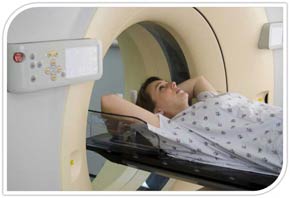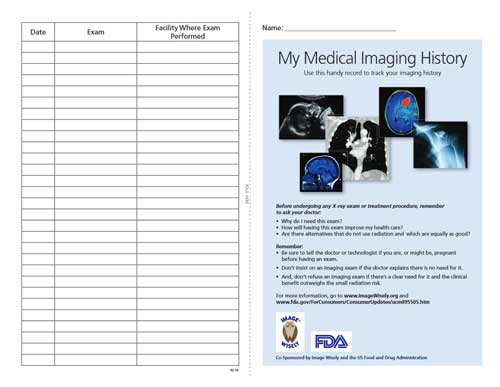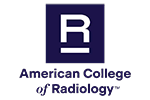I've had many CT scans. Should I be concerned?
There is no recommended limit on how many computed tomography (CT) scans you can have. CT scans provide critical information. When a severely ill patient has undergone several CT exams, the exams were important for diagnosis and treatment.
Medical follow-up care is seldom required for radiation exposure from diagnostic examinations. Effects from radiation are too rare to be a significant consideration, and exceptions are unusual. One example of an exception might be a pediatric patient who has had many CT exams. It would be appropriate to include this radiation exposure as part of the child's medical history.
Age and Radiation Sensitivity
Age plays an important role in radiation sensitivity. Adults have less risk for radiation-induced health conditions, such as thyroid problems, than children.
In patients age 60 and older, radiation exposure is not as significant an issue. The body tissues of older patients are less sensitive to the effects of radiation. It is also important to note that, illnesses affecting older patients are more likely to require CT scans compared with illnesses affecting children.
For more information, see Radiation Risk and Age.
CT Scanning and Radiation Safety
Studies show that the risk of cancer from CT scans is extremely low.
Sometimes, your health condition will require an imaging exam that uses ionizing radiation. If you have concerns, talk to your doctor about the need for and importance of the exam. Your radiologist also can explain the exam’s importance as well as any risk.

CT is a proven, lifesaving imaging technology. It allows the physician to see inside the body. For the past 15 to 20 years, CT has helped guide treatment in ways we previously never thought possible. More importantly, it helps the physician determine if no treatment is necessary.
A CT scan should never be withheld from a child or adult who has a medical condition where the scan could provide important healthcare information. It may save the patient's life.
The question you should ask is: "What should be done regarding my healthcare and diagnostic imaging tests?" Patients need to make sure their medical condition is assessed and managed each and every time in accordance with proper medical care.
Questions to ask:
- How will this imaging exam affect my treatment?
- For a cancer patient undergoing chemotherapy guided by CT, the answer is clear. For patients with benign diseases, the answer may be less obvious.
- Remember: A CT scan provides valuable information to your physician and can be a great relief to you.
-
Is there an alternative imaging method available that does not use radiation?
- In some cases, ultrasound or MRI may also be appropriate; in other cases, CT or x-rays will be the best exam.
- Do not be afraid to have this dialog with your physician.
Your Imaging History
Keep a record of your imaging history. It may be useful in the future. You may move from facility to facility, and your imaging history (copies of examinations and reports) may not.
Recent exams done at one facility do not necessarily need to be repeated if you are referred to another hospital. Take copies of previous exams with you when you go to a different healthcare provider or facility. This can prevent the exam from being repeated unnecessarily.
An accurate record of your medical imaging history can help promote optimal care of many medical conditions. For example, patients with chronic diseases, like kidney stones or Crohn's disease, may require many CT exams. Keeping a history of the exams and discussing the management of your condition with your healthcare providers will help ensure that radiation is being used wisely.
CT imaging is a powerful medical tool that has saved many lives, but it is not without risks. However, when a patient needs the medical care, the benefits outweigh the risks.
How can I help assure quality in my medical imaging healthcare?
Ask if the facility is accredited by a professional healthcare organization. The facility will display a certificate of accreditation to demonstrate this status. To locate a medical imaging or radiation oncology provider in your community, you can search the ACR-accredited facilities database.
A partnership between the patient and healthcare professional will result in improved and safer care.
This page was reviewed on April 15, 2022



